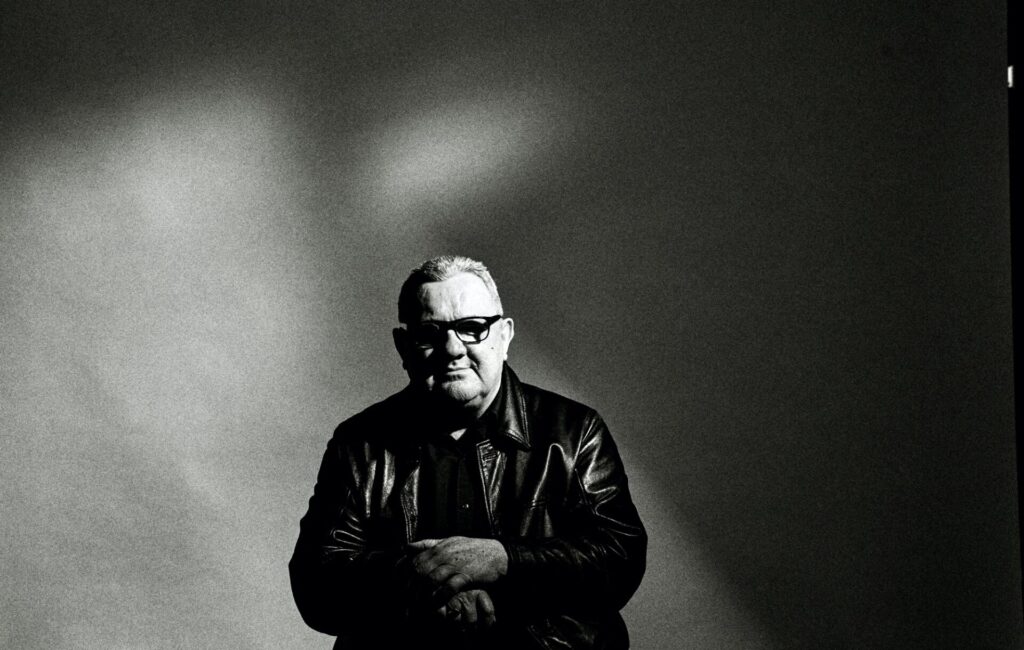Dave Ball, who as one half of Soft Cell made iconic synth-pop hits like ‘Tainted Love’ and ‘Bedsitter’, has died at the age of 66.
Representatives for the artist said he “passed away peacefully in his sleep at his London home on Wednesday” (October 22). No cause of death was given.
Ball’s Soft Cell bandmate, Marc Almond, paid tribute to him, sharing a note that read: “It is hard to write this, let alone process it, as Dave was in such a great place emotionally,. He was focused and so happy with the new album that we literally completed only a few days ago. It’s so sad as 2026 was all set to be such an uplifting year for him, and I take some solace from the fact that he heard the finished record and felt that it was a great piece of work.” He added that he wished Ball had “stayed on long enough” to celebrate the half century of the band in a few years time.
Almond added that Ball “was a wonderfully brilliant musical genius and the pair of us have been on a journey together for almost 50 years.” He reflected on the nature of their relationship, which was at times tempestuous. “In the early days we were obnoxious and difficult, two belligerent art students who wanted to do things our way, even if it was the wrong way,” he said. “We were naive and made mistakes, although we never really saw them as such. It was all just a part of the adventure. Dave and I were always a bit chalk-and-cheese, but maybe that’s why the chemistry between us worked so well. At any given moment, someone somewhere in the world will be getting pleasure from a Soft Cell song.”
Almond’s statement concluded: “Thank you Dave for being an immense part of my life and for the music you gave me. I wouldn’t be where I am without you.”
Richard Norris, who was Ball’s partner in acid house pair The Grid, also paid tribute. “Dave has been a huge part of my musical life for many years,” he wrote. “Being in a duo with someone is different from being in a band: the bond is very tight. That’s how it was with us. We went through so many remarkable, extraordinary, life-affirming experiences together. Thank you, Dave. Thanks for the good times, the endless laughter, your unwavering friendship. Most of all, thank you for the music.”
Born in Chester in 1959 to a single mother and first named Paul, he was adopted and given the name David Ball. Growing up in Blackpool, he later said his adopted father’s work in engineering helped to get him interested in electronics. After Ball’s father died of cancer, he left him some money which he spent on a guitar, before trading it in for a synthesiser.
He moved away from Blackpool to study art at Leeds Polytechnic, where he first met Almond. They formed Soft Cell together in 1978, bringing together Ball’s interest in dark machine music, and Almond’s love of soul and pop ballads.
Ball soon handed a copy of their debut EP to BBC Radio 1 DJ John Peel who played it on his show, and the duo were then signed to the label Some Bizzare. Their first singles ‘A Man Could Get Lost’ and ‘Memorabilia’ flopped, but their follow-up, a cover of Gloria Jones’ ‘Tainted Love’, was a huge chart hit. Released in 1981, it peaked at No. 1 in the UK, and became the second-biggest selling single that year. It also charted in the Top 10 in the US.
Four further consecutive UK Top 10 hits followed in the form of ‘Bedsitter’; ‘Say Hello, Wave Goodbye’; ‘Torch’; and ‘What’. Their debut album, Non-Stop Erotic Cabaret, also went platinum in the UK. Its follow-up, The Art Of Falling Apart, reached No 5, but the duo amicably split in early 1984 against a backdrop of excessive partying and substance abuse. A post-breakup album, This Last Night In Sodom, didn’t achieve much success upon release a month after the duo revealed their intentions to dissolve the project. Ball had also released his first solo album, In Strict Tempo, a year earlier.
After becoming part of a number of other short-lived projects through the mid-80s, Ball eventually formed The Grid with Richard Norris in 1988. Born amidst the acid house era, the duo crafted live-wire rave music, and charted in the UK Top 30 with singles ‘Crystal Clear’ and ‘Texas Cowboys’. Their next single, ‘Swamp Thing’, hit No. 3 in the UK charts in 1994.
Soft Cell reformed in 2000 for a series of live dates, and released a new album, Cruelty Without Beauty, in 2002. A lengthy period of inactivity followed before the duo returned to recording together in 2018 and released two new songs. Another album, Happiness Not Included, arrived in 2022, and was followed last year by Happiness Now Completed.
Ball published his memoir, Electronic Boy: My Life In And Out Of Soft Cell, in 2020. He and Almond played their final live show together in August of this year, for Rewind Festival in Henley-on-Thames.
A new Soft Cell album, Danceteria, named after the New York nightclub which they visited at the height of their fame, is due for release in spring 2026.



